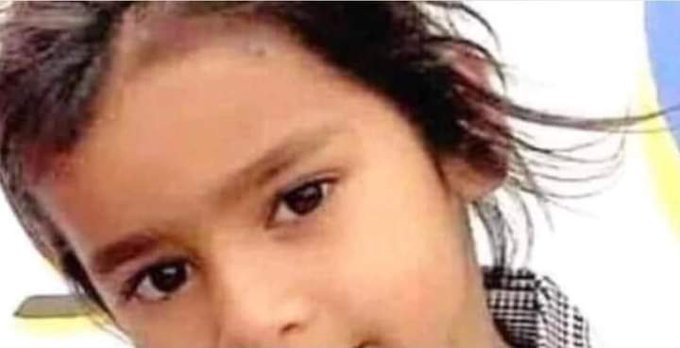On August 19, 2021, during Ashura, a significant day of mourning, nine-year-old Priya Kumari vanished. Moments before her potential abduction, she was joyfully assisting her father—a Hindu who embraces the syncretic traditions and annually operates a sabeel during Muharram in Sanghar, a small town near Sukkur—by distributing sherbet to the mourners. Her case is particularly perplexing: despite the presence of hundreds of people, she disappeared, and the police reportedly found scant evidence or witnesses. Moreover, her plight encapsulates several societal fractures including issues of faith, gender, class, and abuse.
Priya, a Hindu girl, actively participated in religio-cultural practices among Muslims, epitomizing a long-standing tradition of tolerance and peaceful coexistence among diverse communities in Sindh and beyond. Her engagement in these activities, despite prevailing obscurantist attitudes that have incited violence against religious minorities, highlights her and her father’s efforts to bridge religious divides. Her unfortunate circumstances not only spotlight the criminal justice system’s failures but also delve into the deeper ideological conflicts within the state. This dichotomy presents the state as either a benevolent democracy that upholds equality and religious freedom for all, irrespective of race or creed, or as an entity shaped by specific ideological agendas. The latter perspective affects Priya, along with numerous other individuals, groups, and communities.
The plight of Priya underscores the ongoing challenges to achieving ‘gender justice,’ which aims for the systematic eradication of gender-based disparities in both legal and societal contexts. As a female, she represents the myriad of children and women targeted due to their gender, manifesting in various forms and intensities. While better-educated and more socially aware urban women might be less susceptible to severe gender-related offenses, they are not immune to violence, abuse, or harassment. However, the epicenters of gender-based violence predominantly lie in rural and tribal regions where feudal, tribal, and obscurantist forces, often supported by ineffective or complicit governance structures, perpetuate gender inequality.
Even in this context, the incidence of gender-based crimes—such as forced marriages, ‘honor’ killings, domestic violence, and kidnapping for ransom—is notably higher among the less educated and impoverished populations. This stark reality underscores the criminal negligence of the state in protecting these vulnerable women, largely due to the pervasive influence of local feudal-tribal patriarchies on social policy and governance. One must question whether the state can justifiably ignore both local and international legal obligations, including the Convention on the Elimination of All Forms of Discrimination Against Women, which mandates the protection of women’s rights, merely to placate its local representatives.
Priya’s ordeal further underscores the socio-economic dimensions of crimes against women. Hailing from an impoverished background, she embodies the myriad vulnerabilities associated with poverty and disempowerment. Statistically, children from poorer and marginalized communities are disproportionately victims of sexual crimes. Offenders may be emboldened by both the victims’ inability to seek justice and the state’s generally lukewarm response, resulting in many such ‘ordinary’ cases going undetected or being dismissively ‘settled’.

Recently, two incidents highlighted the deficiencies of our faltering criminal justice system. In 2021, wildlife activist Nazim Jokhio was brutally murdered near Thatta for attempting to prevent the hunting of protected birds. Despite being a clear-cut case, the powerful culprits were ‘pardoned’ by the victim’s family, driven by desperation and helplessness. In August of the previous year, nine-year-old maid Fatima Fariro died under mysterious circumstances in Ranipur, near Khairpur. An investigation report, including video footage from the crime scene, suggested her death was due to abuse and torture by her influential employer. However, months have passed and the prosecution has yet to conclude, raising concerns that the delay, intentional or unintentional, might result in an out-of-court settlement.
Priya’s situation involves either a ‘disappearance’ or an ‘abduction,’ and the possibility of abuse cannot be ruled out. Child abuse is escalating, with 2,227 victims reported in 2023 alone, and over half (54%) of these were girls. It’s crucial to remember that children, like women, are entitled to multiple layers of protection under domestic, specialized, and international laws. The UN Convention on the Rights of the Child specifically mandates that states safeguard the comprehensive rights of children, encompassing civil, political, economic, social, health, and cultural aspects. Regrettably, child abuse, akin to forced disappearances, is both widespread and overlooked, especially when the victims are from impoverished backgrounds. Typically, only those cases vigorously pursued by the victim’s family see successful prosecution; otherwise, they tend to fade into the forgotten depths of our criminal justice system.
Fortunately, media attention, along with the advocacy of civil society and political activists, has kept Priya’s case in the spotlight. Recently, under public pressure, the government established another Joint Investigation Team (JIT). However, the effectiveness of this new JIT in recovering Priya and delivering justice remains uncertain, dependent on several factors such as the victim’s family’s persistence, the investigator’s thoroughness, the influence of the suspect, the capability of the prosecutors, and crucially, the court’s readiness to handle the case swiftly and fairly.
Intriguingly, the unresolved nature of Priya’s disappearance, Fatima’s prolonged prosecution, and the ‘pardoning’ of offenders in Nazim’s case collectively illustrate the inadequacy, dysfunction, and discomfort plaguing the entire criminal justice system, from law enforcement to adjudication. Consequently, a growing perception that our legal system has become ineffective and thus lacks legitimacy is leading to increased desperation. This has given rise to ‘mob justice’ and vigilantism. This raises a pivotal question: can a state achieve stability and progress without an effective and legitimate legal framework?
